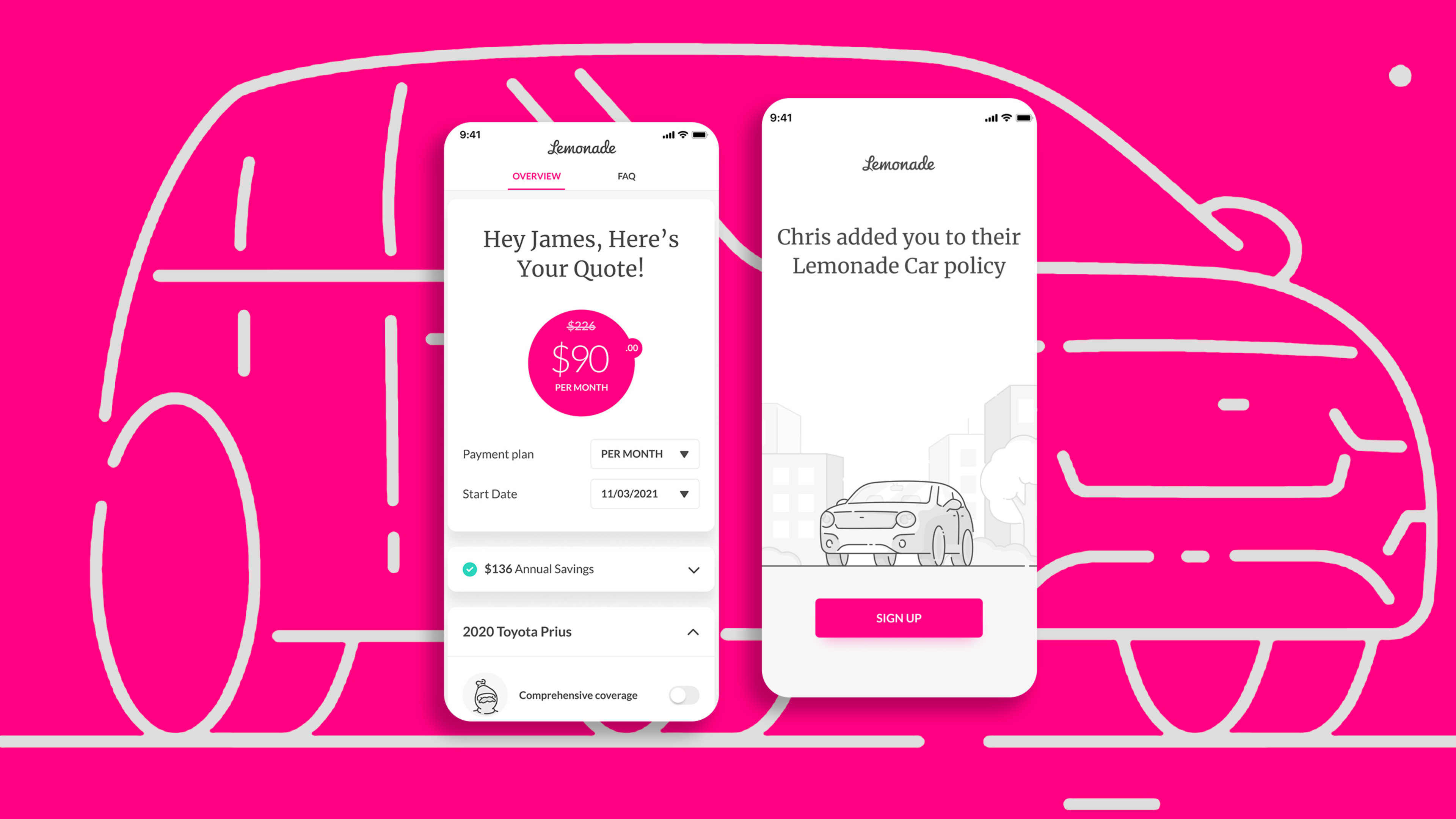Lemonade, the insurance company that says it’s designed for social impact, is getting into car insurance, and it’s offering incentives for people who drive electric vehicles or hybrid cars, and lower rates for those who drive less.
Lemonade is a certified B Corporation, so having a positive social impact, cofounder and CEO Daniel Schreiber says, is among the things the company is not only “entitled but . . . committed to consider as we go about our business.” Lemonade already incorporates charitable giving by donating leftover premium payments to a nonprofit of its customers’ choice, and has committed to not investing in coal or other fossil fuels, unlike other insurance companies. (As of 2019, the U.S. insurance industry had a collective $582 billion invested in fossil-fuel-related activities.)

But he adds that the company wanted to structure Lemonade Car in a different way from others in the industry. Using telematics, technology that uses a driver’s mobile phone to track how and how much they drive (other insurance companies use telematic devices to get this information), Lemonade will calculate how many CO2 emissions are coming from a customer’s driving.
That data will go toward two uses: Lemonade will reward low-mileage drivers with better rates (a low-mileage driver could see savings upward of 30% to 40%, Schreiber says), and the company will work with the nonprofit One Tree Planted to fund reforestation projects that could sequester an equivalent amount of carbon. That benefit isn’t immediate, Schreiber notes; like any carbon offset, the benefit comes over the life of the trees.
Lemonade Car will also provide discounts and special coverage for people who drive EVs and hybrids. That expanded coverage will include a driver’s at-home charger, treated as if it is part of the car, and roadside assistance to deliver a charger if an EV driver runs out of a charge while on a trip.

Schreiber couldn’t say exactly how much EV and hybrid drivers will save with Lemonade Car insurance, since it depends on the specific make and model of each car. EV and hybrid drivers aren’t necessarily less likely to crash or have their car stolen, so the risk for paying out claims isn’t reduced. There’s a chance Lemonade profits could take a hit by insuring these cars with these incentives, Schreiber says, but that’s something “time will tell” as the business grows.
And if you don’t have an EV or hybrid, you can still get a policy with Lemonade Car, as long as your car hits the company’s gas mileage benchmarks. “At the other end of the spectrum, we’re actually not going to be insuring the real guzzlers,” Schreiber says. The company has a formula to figure out which older cars emit “really irresponsible amounts of pollution.” “We’re just going to refuse to insure those at all,” he says.
Lemonade Car is first launching in Illinois and next in Tennessee; additional states across the country will roll out after.
Recognize your brand’s excellence by applying to this year’s Brands That Matter Awards before the final deadline, June 7.
Sign up for Brands That Matter notifications here.
